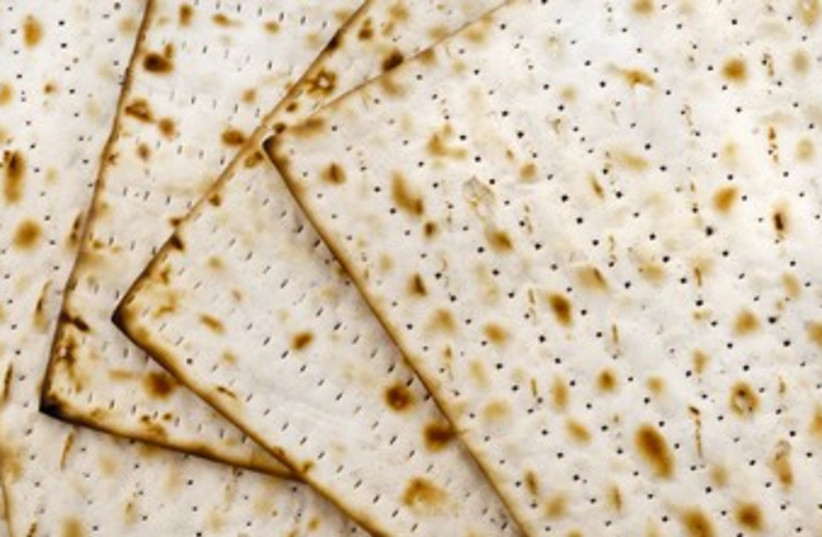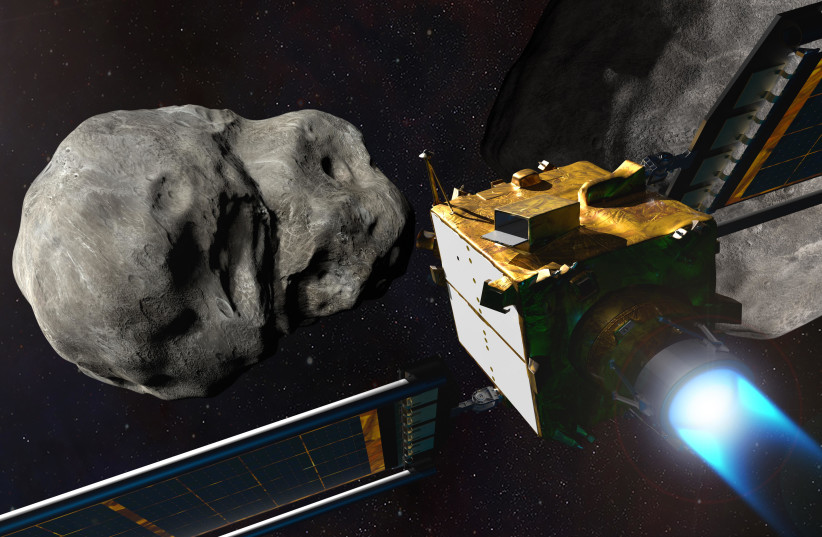A large asteroid the size of over 787 matzah squares is set to pass over Earth on Passover, April 6, according to NASA's asteroid tracker.
The asteroid in question has been designated as 2023 FM and was discovered this year, according to the Center for Near-Earth Object Studies (CNEOS) at NASA's Jet Propulsion Laboratory (JPL).
However, it is only one of several space rocks set to make their journey across our sky on the day after the Passover Seder.
For those wondering, the matzah sizes are calculated using the listed dimensions provided by one of the top matzah makers worldwide, Manischewitz, and are not reflective of shmura matzah.
Let my people go.... not get hit by an asteroid. How big is the asteroid coming toward Earth in 2023?
According to NASA, asteroid 2023 FM has a minimum estimated diameter of 120 meters.

To put that in a more relatable, and timely, metric, the standard matzah square sold by Manischewitz is six inches by six inches, equal to almost 15 and a quarter centimeters.
In other words, at its smallest possible size, asteroid 2023 FM will be the size of over 787 Manischewitz brand matzah squares.
At its maximum possible estimate of 270 meters in diameter, that rises to over 1,771 matzah squares. Ironic, for a food that famously does not rise.
But asteroid 2023 FM is only one of several asteroids set to pass over us this Passover day - and even more are set to come throughout the week-long holiday.
Passover plagues of asteroids? What other asteroids are coming?
The other asteroids that are set to pass by Earth on April 6 are as follows:
- Asteroid 2023 FZ3, 79 meters
- Asteroid 2018 FD, 78 meters
- Asteroid 2023 FE4, 52 meters
- Asteroid 2020 FL4, 24 meters
Luckily, none of them are set to hit the Earth, passing over us like the plague that struck down the Egyptian firstborn passed over the Israelites in biblical times.
The bitter (herbs) truth: Will an asteroid hit the Earth in 2023?
First off, yes, asteroids have already hit the Earth this year.
This happened in Texas, when a corgi-sized meteor that weighed as much as four baby elephants crashed without any damage.
It also happened near Normandy, France, when asteroid 2023 CX1, the size of two Super Bowl trophies, crashed without causing any damage.
Asteroid 2023 FM is not like those, however. It is very big - arguably of biblical purportions. If it impacted Earth, the results could be devastating for an entire country or region.
However, that won't happen. Its orbital path is far away from Earth on any thing but a cosmic scale.
The same is true of all the other asteroids set to pass over on April 6.
But hopefully, asteroids will stay out of our way this Passover - even if the ones that do it tend to be harmless since they on average end up crashing into the ocean.

Do we have any way to stop an asteroid from hitting the Earth?
Yes, thanks to the "strong hand" of science.
Planetary defense scientists have been hard at work to safeguard Earth from asteroids. The most promising effort thus far is NASA's Double Asteroid Redirection Test (DART) Mission, which was launched to see if it could alter the trajectory of the faraway asteroid Dimorphous by crashing into it.
And as follow-up observations showed, it worked.
Scientists now know for sure that with enough time and planning, we can safeguard the Earth from an asteroid impact – even one measured in the matzah.
So enjoy your Passover Seder - you don't have an asteroid excuse to get out of it.
